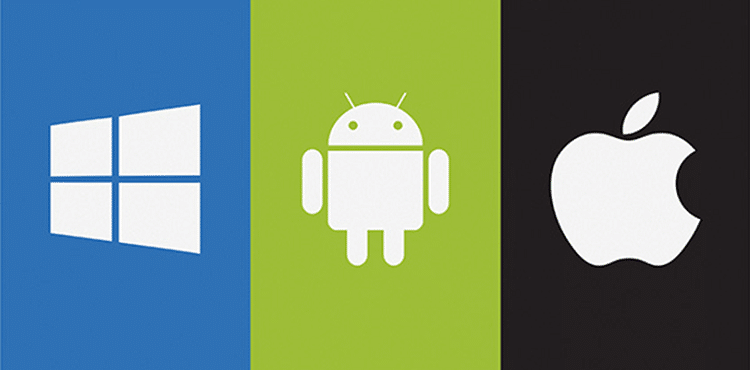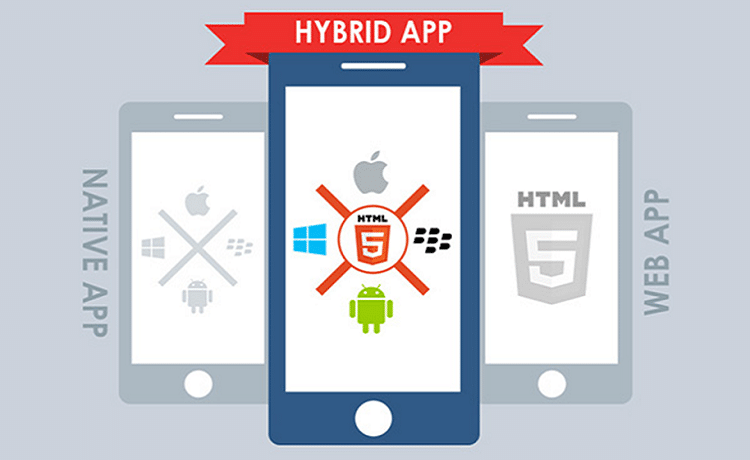A Breakdown of Hybrid vs. Native Mobile App Development Costs

TechsPlace | According to the mobile app development UK stats, the mobile app market will grow 385% by the year 2021. With the mobile app market growing exponentially, it is only sensible to create apps not only to meet the consumer’s demand but also to increase the financial value of your company.
From the early days, native apps dominated the market. They were created using programs like Objective C (iOS) and Java (Android). But with the arrival of JavaScript, CSS, and HTML, many companies have started preferring hybrid apps. But just because everyone is talking about hybrid apps does not mean that they are good for everyone.
Deciding to build your app in either native or hybrid really depends on your business goals and objectives. You need to understand the working of each app development platform to realize which will help you in achieving your overall goals.
This is why we have made a complete breakdown of native and hybrid development. The purpose of this article is not to pick a winner, rather let you understand the advantages, disadvantages and overall working of each approach.
Native Apps

Native apps are written in languages that differ from platform to platform for example Objective C and Swift for iOS and Java for Android. Market-wise, various companies prefer native apps as they have the responsiveness and the speed required for a better user experience. Moreover, apps developed through native technology are more intuitive and interactive.
In spite of all of this, native apps can be expensive when it comes to development. This is because developers need to use separate code bases for both the iOS and Android.
Advantages
- Easier to maintain as these apps are not dependent on cross-platform tools.
- Easier data collection from internal hardware.
- Better configured and quick access to device’s features.
- Internet connection is rarely required for the working of these apps.
Disadvantages
- Specific developing skills required to write codes.
- Not time efficient as you need developers fluent in coding of Android and iPhone.
- Not a suitable option for simple apps as difficult languages are required for its development.
Here are some more pros and cons of a native app. By reading them, you will gain a deeper understanding of where native apps excel and where they fall short.
Hybrid Apps

The hybrid app is made up of two parts. The first is a back-end code developed through languages like CSS, JavaScript, and HTML. The second part is the native shell which loads the code through Web-view.
Hybrid apps have a quicker development time as developers only need to code one app which will work the same across all the platforms. The development of hybrid apps is quicker than the native apps but you cannot customize your hybrid app just like you can do with your native ones. Customizing your hybrid app is expensive therefore a native app can be cost-efficient in the long run.
To understand hybrid development in more details, here is a quick read for you.
Advantages
- Easier to build since it is built on web technology such as JavaScript, CSS, and HTML.
- One app can perform same across other platforms through Cordova.
- Hybrid apps can access the device’s storage, camera, and internal APIs.
- Quicker to develop than the native ones.
Disadvantages
- App’s performance, feel and look will not be consistent across all platforms.
- Slower performance and less interactive.
- Customization will ruin the hybrid experience. If customizing, you might as well go with the native development option.
Which App Development Option is Cost Efficient?

When it comes to app development, both the hybrid and native require the same amount of money and efforts.
The native apps have no single code which makes it impossible to work them on every platform using similar codes. With the native apps, you have to develop separate codes and require different skill sets for your apps to work properly on both the Android and iOS. This ends up costing money through the developing stages.
Although hybrid apps require a single set of codes to work the same across every platform, it can still cost money in the long run and here is why. With the hybrid development system, you will face issues stemming from both the hybrid and native systems.
Can In-house Web Developers Support Hybrid or Native Apps?
In-house web support only works if your developers have a special set of skills. With both the app, the developers need to be fluent in Android and iOS functionality apart from simple web development.
Both native and hybrid are complex applications. To support each application, you need to find a developer that has two different set of skills. From a standard point of view, developers with such capabilities are hard to come by, and from a financial point of view, such developers can be expensive to retain.
Dealing with both hybrid and native development system through in-house developers is not a convenient option. We highly recommend that you enlist the services of a mobile app development company. Through this, you can have access to a team of highly-trained developers who have the right expertise to help you build your desired mobile app.
Performance and User Experience

If an app fails to provide a great overall user experience, the users will most likely uninstall your app. For this reason, you need to ensure that your app is consistent and does not face functioning issues.
When it comes to user experience, native apps are great as they are interactive and overall reliable in nature. It provides a seamless experience by having foolproof structure, visual elements, and content. Since it is developed separately for every platform, native apps are capable of delivering a smooth user experience.
On the other hand, hybrid apps provide a user experience that differs from user to user. Moreover, the version of the software the users are using and the kind of mobile devices can greatly affect the hybrid apps. Because of this, the app may fail to appear consistent which can take a toll on its performance.
Final Thoughts

So which app development is the best? Like we mentioned earlier, it all comes down to your business’ needs and requirements. However, if you want a money-saving and a cost-effective solution, we highly recommend a native app.
Both the platforms have their own advantages and disadvantages but here is why we recommend a native development app. The native app is always developed by keeping the user experience and technical guidelines of the respective OS in mind. This means that the native app has a great in-app interaction with other apps of the operating software. This provides a great user experience and better performance on every device.
When it comes to hybrid apps, you lose not only performance but functionality as well since different software versions and varying mobile devices can cause troubles. To solve these issues, you may need to repair your app which will cost you money. So for business owners, who need to make the most out of their money, should go with the native development option.
This article is contributed by guest author on techsplace.com.





